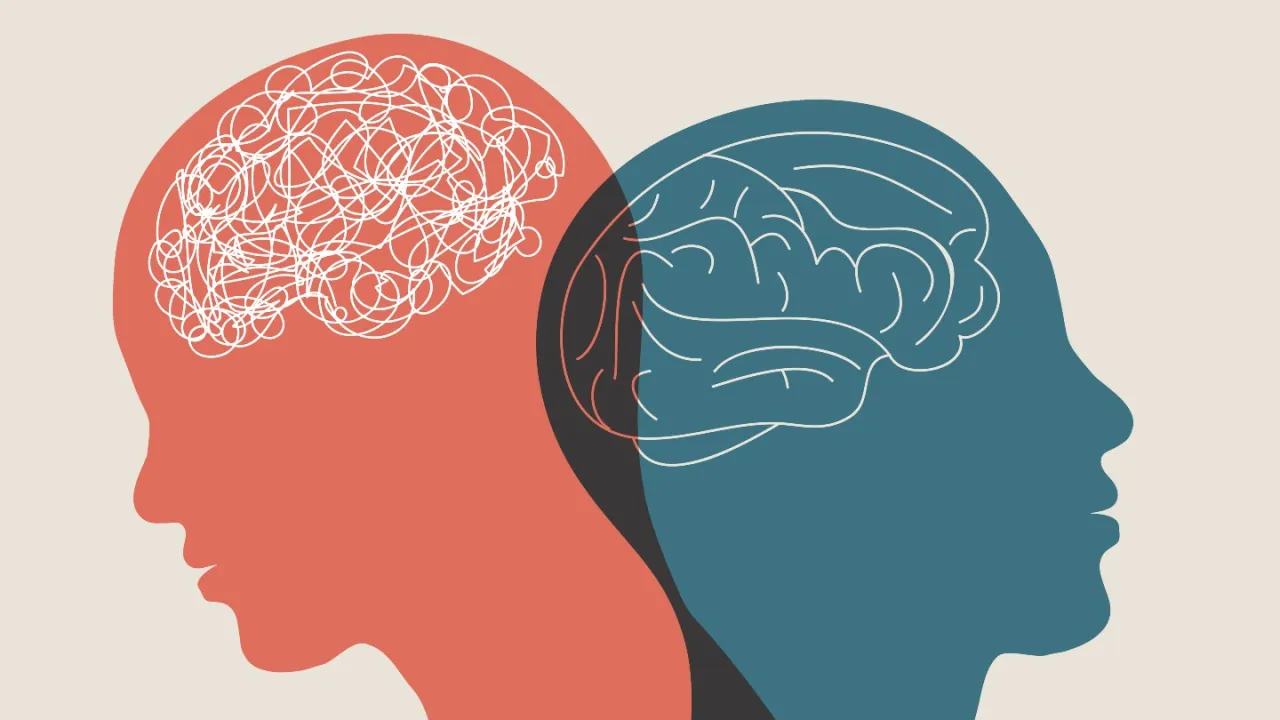
Your Mental Health Ally: Understanding the Latest Devices
Introduction to Mental Health Devices
In today’s fast-paced and demanding world, prioritizing our mental well-being has become more important than ever. Thankfully, technological advancements have paved the way for a new generation of devices designed specifically to support our mental health. From stress reduction to sleep improvement, these innovative tools are revolutionizing the way we take care of ourselves.
Join us as we delve into the world of mental health devices and discover how they can be your ultimate ally in promoting a healthier mind. Whether you’re seeking tranquility in a hectic day or looking for ways to improve your overall well-being, these cutting-edge gadgets have got you covered. Let’s explore the benefits they offer and uncover some popular options that have already taken the market by storm.
So sit back, relax, and embark on this journey with us as we dive deep into understanding how mental health devices can transform your life for the better!
Types of Mental Health Devices
When it comes to mental health devices, there is a wide range of options available to suit different needs and preferences. These devices aim to provide support and assistance in managing various aspects of mental well-being. Let’s explore some of the types of mental health devices that are gaining popularity.
1. Wearable Devices: These include smartwatches, fitness trackers, and even rings like the Dhyana ring that monitor heart rate variability, sleep patterns, stress levels, and more. They offer real-time data and insights into your physical and emotional state.
2. Meditation Apps: With our fast-paced lives, finding time for relaxation can be challenging. Meditation apps come to the rescue by providing guided meditation sessions tailored to individual needs. They often include features such as breathing exercises, soothing music, and mindfulness techniques.
3. Light Therapy Lamps: For those experiencing seasonal affective disorder (SAD) or mood swings due to lack of sunlight exposure, light therapy lamps simulate natural outdoor light conditions indoors. This can help regulate circadian rhythms and improve overall mood.
4. Brainwave Headbands: These innovative devices use sensors to measure brainwave activity during meditation or sleep sessions. By monitoring brainwaves in real-time, they provide feedback on focus levels or help induce deep states of relaxation for enhanced well-being.
5. Virtual Reality (VR) Therapy: VR-based mental health devices immerse individuals in virtual environments designed specifically for therapeutic purposes like exposure therapy for phobias or anxiety disorders.
Incorporating these diverse types of mental health devices into your routine can enhance self-awareness, aid in stress management techniques,and promote overall well-being without relying solely on traditional methods alone! So why not give them a try? The future holds immense potential for further advancements in this field as technology continues to evolve for betterment!
Benefits of Using Mental Health Devices
Mental health devices have become increasingly popular as people recognize the importance of taking care of their psychological well-being. These innovative tools offer a range of benefits that can greatly improve your mental health and overall quality of life.
Mental health devices provide a convenient way to monitor and track your emotional state. With features like heart rate monitors, sleep trackers, and mood sensors, these devices give you valuable insights into your mental well-being on a daily basis. This information can help you identify patterns or triggers that may be affecting your mental health and make necessary adjustments to improve it.
Additionally, using mental health devices can promote self-awareness and mindfulness. Many devices come equipped with guided meditation programs or breathing exercises that encourage relaxation and stress reduction. By incorporating these practices into your routine, you can develop healthier coping mechanisms for dealing with anxiety or depression.
Furthermore, mental health devices offer support outside traditional therapy sessions. While therapy is invaluable, having access to tools that can assist in managing symptoms between sessions is incredibly beneficial. Whether it’s through providing calming music playlists or virtual support communities where you can connect with others facing similar struggles, these devices ensure continuous support when needed most.
Moreover, using mental health devices encourages accountability in self-care routines. By setting goals and receiving reminders via these technologies, individuals are motivated to prioritize their well-being regularly. Whether it’s getting enough exercise or practicing mindful breathing throughout the day – this increased focus on self-care empowers individuals to take an active role in maintaining their mental wellness.
The benefits of using mental health devices are vast and transformative for those seeking ways to improve their psychological well-being. From tracking emotional states to promoting mindfulness and providing ongoing support – these innovative tools enhance our ability to manage our own mental wellness proactively.
Popular and Effective Mental Health Devices
In today’s fast-paced world, taking care of our mental health has become more important than ever. Thankfully, advancements in technology have made it easier for us to prioritize our well-being. Mental health devices have gained popularity as valuable tools in managing stress, anxiety, and other conditions.
One such popular device is the Dhyana ring. This innovative wearable helps users monitor their stress levels throughout the day by tracking heart rate variability (HRV). HRV is a powerful indicator of overall well-being and can provide insights into our body’s response to stressors.
Another effective mental health device gaining attention is Muse. This headband uses electroencephalography (EEG) sensors to measure brain activity during meditation sessions. It provides real-time feedback through an accompanying app, helping users enhance their mindfulness practice.
For those struggling with sleep disorders or insomnia, the Dodow device offers a solution. By projecting a rhythmic light onto the ceiling, Dodow guides users into slow breathing exercises that promote relaxation and better sleep.
The Spire Stone is another notable mental health device that focuses on breath awareness. Worn discreetly on clothing or attached to undergarments, it monitors breathing patterns and sends notifications when tension or stress levels rise.
These popular and effective mental health devices offer convenient ways to track and improve our well-being. Incorporating them into our daily routines can help us manage stress more effectively while promoting better sleep quality and overall emotional balance.
How to Incorporate Mental Health Devices into Your Routine
Incorporating mental health devices into your routine can be a game-changer when it comes to managing and improving your well-being. These innovative tools are designed to assist you in tracking, understanding, and addressing various aspects of your mental health. So how exactly can you seamlessly integrate these devices into your daily life? Let’s explore some practical tips.
It’s important to choose the right device for your needs. Whether it’s a smartwatch that monitors stress levels or a meditation headband that guides you through mindfulness exercises, find a device that aligns with your specific goals and preferences.
Once you have selected the perfect mental health device, make sure to set aside dedicated time each day for using it. This could involve scheduling regular meditation sessions with a mindfulness app or wearing a sleep tracker every night to monitor your sleep patterns.
Another way to incorporate mental health devices is by integrating them into existing routines. For example, if you enjoy going for walks or runs, consider using an activity tracker that also provides insights on mood and stress levels during exercise.
Furthermore, don’t forget about the power of consistency. Like any habit-forming practice, using mental health devices regularly will yield better results over time. Make it part of your daily routine just like brushing your teeth or having breakfast.
Remember that technology should complement rather than replace other self-care practices such as therapy or talking to loved ones. Mental health devices are most effective when used in conjunction with professional advice and support systems.
By incorporating mental health devices into our routines thoughtfully and consistently, we can take proactive steps towards enhancing our overall well-being and achieving greater balance in our lives
The Future of Mental Health Devices
As technology continues to advance at an exponential rate, the future holds great promise for mental health devices. With increased awareness and understanding of mental health issues, there is a growing need for innovative solutions that can help individuals manage their well-being more effectively.
One exciting direction in the field of mental health devices is the integration of artificial intelligence (AI). Imagine having a device equipped with AI capabilities that can analyze your mood patterns, detect stress levels, and provide personalized recommendations to improve your mental state. This could revolutionize how we approach self-care and empower individuals to take proactive steps towards better mental well-being.
Another area of potential growth lies in virtual reality (VR) therapy. VR has already shown promising results in treating various mental health conditions such as anxiety and PTSD. In the future, we can expect even more sophisticated VR experiences tailored to specific needs, allowing individuals to engage in immersive therapeutic interventions from the comfort of their own homes.
Advancements in wearable technology are also set to shape the future landscape of mental health devices. Companies like Dhyana Ring have developed smart rings that monitor biometric data such as heart rate variability and sleep patterns. These devices not only provide valuable insights into overall health but also offer real-time feedback on stress levels and suggest techniques for relaxation or mindfulness practices.
Furthermore, telemedicine platforms are likely to play a significant role in expanding access to mental healthcare through digital devices. Remote consultations with therapists or psychiatrists via video calls could become more commonplace, eliminating geographical barriers and making it easier for people to seek professional help when needed.
As technology evolves, so does our ability to support our mental well-being using innovative devices. The future promises advancements integrating AI capabilities into personal devices while also exploring the potential benefits of virtual reality therapy and wearable gadgets like smart rings. Telemedicine platforms will continue bridging gaps between patients and professionals by offering remote consultations conveniently accessible through digital tools
Conclusion
In today’s fast-paced world, taking care of our mental health has become more important than ever. Luckily, advancements in technology have given us a range of devices designed specifically to support and improve our mental well-being. Whether you’re looking to manage stress, track your mood, or enhance your meditation practice, there is a mental health device out there for you.
From wearable devices like the Dhyana Ring to smartphone apps and virtual reality headsets, these innovative tools are revolutionizing the way we approach our mental health. By incorporating these devices into our daily routines, we can gain valuable insights into our emotional state and develop healthy habits that promote overall well-being.
The benefits of using mental health devices are numerous. They provide us with real-time data and feedback on our emotional state, helping us identify patterns and make informed decisions about self-care strategies. They also serve as constant reminders to prioritize our mental well-being by giving us gentle nudges throughout the day.
Some popular and effective mental health devices include biofeedback monitors that measure heart rate variability (HRV) and promote relaxation through breathing exercises. Others use electroencephalography (EEG) technology to train the brainwaves for improved focus and reduced anxiety.
To incorporate these devices into your routine effectively:
1. Start by researching different options available in the market.
2. Choose a device that aligns with your specific goals and needs.
3. Create a dedicated schedule or set reminders to ensure consistent usage.
4. Track your progress over time by analyzing the data provided by the device.
5. Experiment with different features or settings to personalize your experience.
6. Remember that consistency is key – regular use will yield better results.
As technology continues to advance at an incredible pace, we can only expect further developments in the field of mental health devices. The future holds great promise for even more sophisticated tools that cater specifically to individual needs while seamlessly integrating into everyday life.
Mental health devices are invaluable allies in our journey towards improved well-being. By utilizing their capabilities and incorporating them into our routines, we can prioritize self-care and take proactive steps towards a healthier mind and body. Let these devices be your ultimate ally in supporting your mental health journey – embrace the future of technology for better mental wellness today!



Average Rating